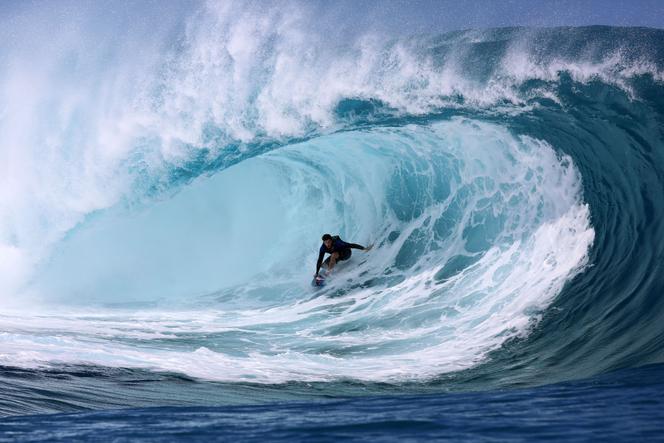


Beach football, hockey, basketball, tennis, sack races, volleyball, and va'a, a traditional outrigger canoe... At the end of March, 170 elementary and middle school pupils aged 7-11 sweated it out under a blazing sun in Moorea, an island half an hour by ferry from Papeete, the capital of French Polynesia.
At the start of an Olympic and Paralympic week, the aim was to look ahead to the Paris 2024 Summer Olympics to promote the practice of sport and tackle "our public health issues in general, and childhood obesity in particular," as Ernest Marchal, head of the Punaauia and Moorea-Maiao educational district, put it.
While Polynesia will be at the heart of next year's Olympics, with the Teahupo'o wave in Tahiti hosting surfing events, another wave is looming. According to a 2019 report by the World Health Organization (WHO), 79% of adults were overweight there, up from 70% in 2010, with the increase most striking in the under-45 age group, and 48% of the adult population was obese, up from 40% in 2010. As for children, the latest figures, as of 2020, show that 11.9% of 5-6 year-olds are obese, and 27% are overweight.
"It's a major problem. Apart from the fact that Polynesia has one of the highest obesity rates in the world, what we see coming is a health tsunami, particularly in terms of cardiovascular disease," said Julien Rousseaux, a local practitioner. "An obese child will wear out his or her body prematurely and by the age of 25 could already be diabetic and hypertensive." Aware of this health crisis, the local government has put the issue on top of the agenda of the 15th meeting of Pacific health ministers, which was hosted by the WHO in Tonga earlier this month.
"Here, you'll never starve! At the Temae stand, where Tahitian mamas served meals, large plates filled to the brim with meat and fish in sauce illustrated the local trend toward high-calorie, XXL rations. In fact, "plump" statures, a sign of social importance, are highly valued. "For us, eating well means eating a lot. Being fat means being strong," said Michel Bourez, a surfer involved in the fight against obesity in his position as Paris 2024 ambassador for youth.
In addition to this "cultural" dimension, as Rousseaux pointed out, consumption patterns have changed. "Polynesians traditionally alternated between periods of abundance, during the rainy season, and periods of food scarcity, until the 1950s-1960s. From then on, investment in infrastructure and nuclear research boosted the influx of people arriving from mainland France. This led to the continued presence of foods, most often industrialized, richer in fat and salt."
You have 50.05% of this article left to read. The rest is for subscribers only.
